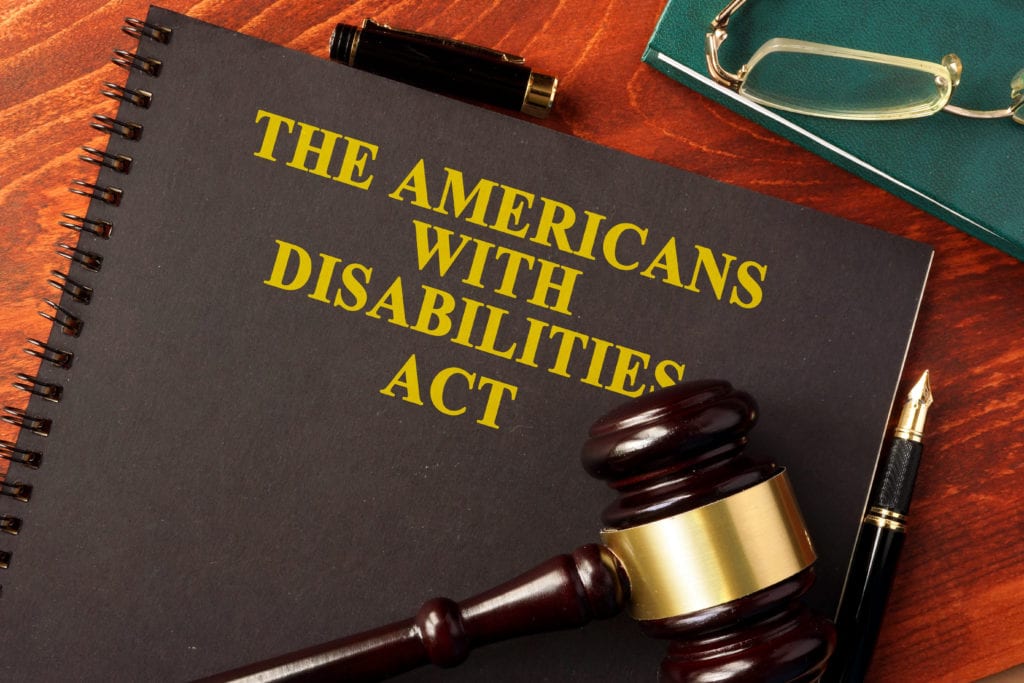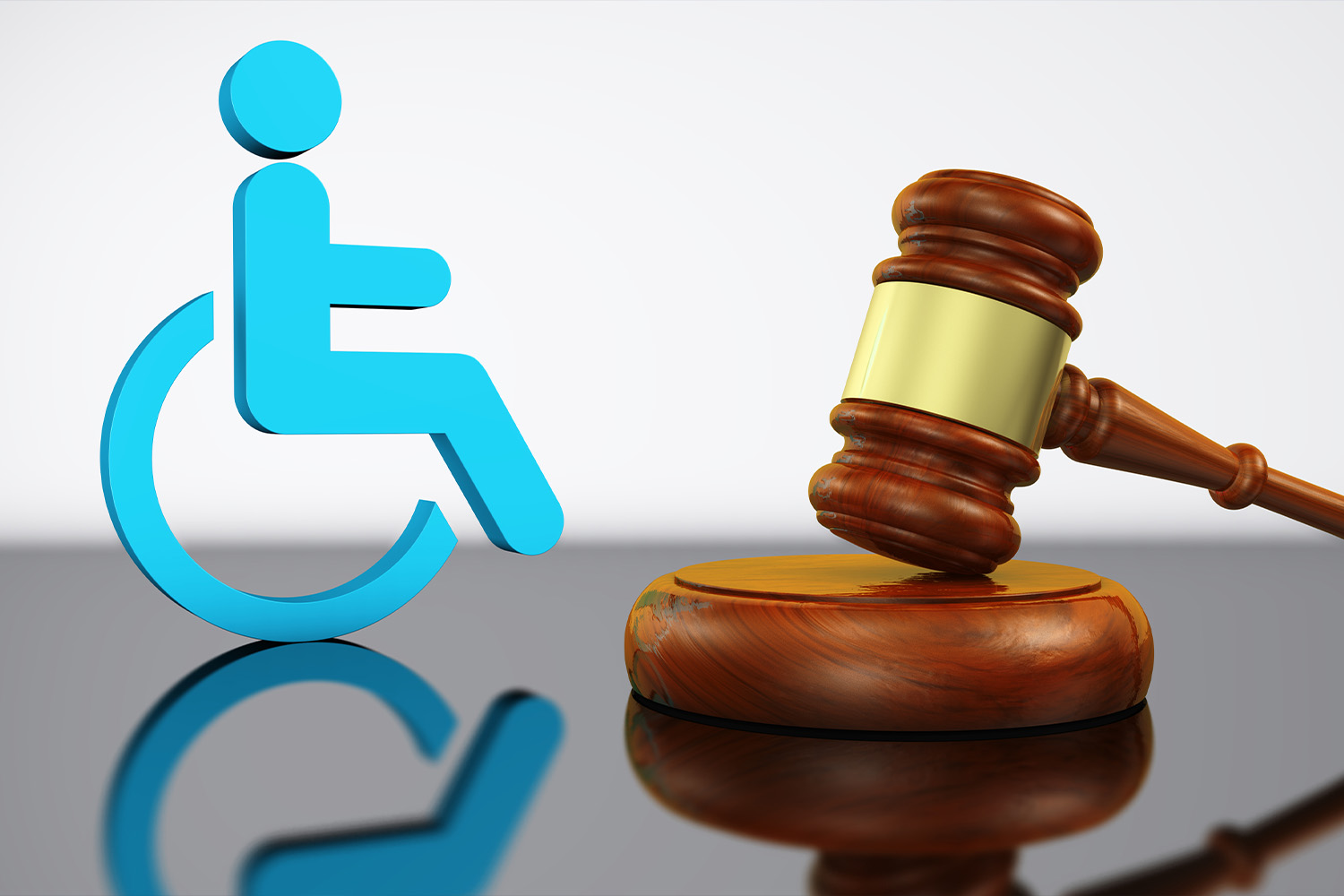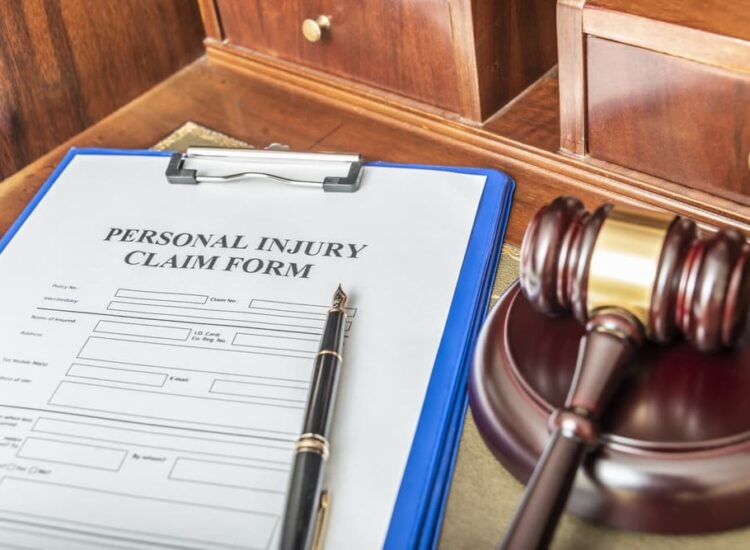Navigating the disability benefits process can be daunting, especially when facing a debilitating illness and financial hardship. Finding the right legal representation can make all the difference in securing the benefits you deserve. A best disability lawyer in South Carolina can provide the essential guidance and advocacy needed to navigate the complex appeals process.
Toc
- 1. Understanding the Role of the Best Disability Lawyer in South Carolina
- 2. Finding the Right Disability Lawyer in South Carolina
- 3. Avoiding Common Pitfalls When Choosing a Disability Lawyer in South Carolina
- 4. The Importance of Early Legal Guidance in South Carolina
- 5. Factors to Consider When Choosing a Disability Lawyer in South Carolina
- 6. The Disability Hearing Process in South Carolina
- 7. Frequently Asked Questions (FAQ)
- 8. Conclusion
Understanding the Role of the Best Disability Lawyer in South Carolina

When it comes to applying for Social Security Disability Insurance (SSDI) or Supplemental Security Income (SSI) benefits, having the best disability lawyer on your side can make all the difference. These legal professionals specialize in helping individuals navigate the intricate rules and regulations set forth by the Social Security Administration (SSA). Here’s how they can assist you:
Comprehensive Application Support
A proficient disability lawyer will help ensure your application is complete and accurate, significantly enhancing your chances of approval. They understand the nuances of the SSA’s requirements and can guide you in presenting your case effectively.
Gathering Strong Medical Evidence
Your lawyer will work with you to gather robust medical documentation that supports your claim. This includes obtaining relevant medical records, statements from healthcare providers, and any other evidence that can substantiate your disability. For example, they can help you obtain detailed records of your medical history, including diagnoses, treatment plans, and progress notes. They may also request statements from your treating physicians outlining how your condition affects your ability to work. In some cases, they may also seek expert opinions from specialists in your field to further support your claim.
Negotiating with the SSA
Navigating the SSA can be challenging, especially with recent changes to the regulations. A seasoned disability lawyer will act as your advocate, skillfully negotiating with the SSA to ensure your rights are protected and your case receives a fair hearing.
Representation at Hearings and Appeals
If your initial claim is denied, your lawyer will represent you at hearings and appeals. They will prepare you for what to expect, help you articulate how your condition affects your ability to work, and question any expert witnesses that may be called to testify. For instance, they might help you understand the specific regulations and procedures that apply to your case. They can also advise you on how to present your testimony in a clear and compelling manner. Additionally, they can help you prepare for cross-examination by the SSA’s attorneys, ensuring you are prepared to respond effectively to any challenging questions.
Protecting Your Rights
Throughout the entire process, the best disability lawyer will safeguard your rights, ensuring you are treated with fairness and respect. This is particularly important if you are dealing with a complex medical condition or have faced previous denials.
Finding the Right Disability Lawyer in South Carolina

Identifying the best disability lawyer requires a thoughtful approach. Here’s a step-by-step guide to help you find the right attorney for your needs:
Asking for Referrals
Start by seeking recommendations from trusted sources. Talk to your healthcare provider, friends, or family members who have experience with disability lawyers. Personal referrals can lead you to reputable attorneys who have a proven track record.
Utilizing Online Resources
Take advantage of online tools to find specialized disability lawyers. Websites like lawyer directories, review platforms, and the South Carolina Bar Association can provide valuable insights. Look for client reviews and testimonials that speak to the lawyer’s reputation and success rate.
Scheduling Free Consultations
Many disability lawyers offer free consultations, allowing you to discuss your case without financial commitment. Use this opportunity to assess their expertise and approach. During the consultation, consider asking the following questions:
- What is your experience handling disability cases?
- What is your success rate with SSDI and SSI claims?
- How will you approach my specific case?
- What are your fees and payment arrangements?
- What options do I have if my claim is denied?
- Can you provide references from past clients?
Understanding the Fee Structure
Most disability lawyers work on a contingency fee basis, meaning they only get paid if your claim is successful. Typically, these fees are capped at 25% of your retroactive benefits or $6,000, whichever is less. It’s crucial to understand the fee structure and any additional costs associated with your case before signing a contract.
Avoiding Common Pitfalls When Choosing a Disability Lawyer in South Carolina

Selecting the right disability lawyer is crucial, but there are common pitfalls to avoid:
Beware of Guarantees
Be cautious of lawyers who promise guaranteed outcomes. While experienced disability lawyers can significantly improve your chances of success, they cannot guarantee specific results. The SSA’s decision process is complex, and each case is unique, so it is essential to work with an attorney who provides a realistic assessment rather than false assurances.
Check Credentials and Experience
Ensure the lawyer you choose has specific experience in handling SSDI and SSI cases. Verify their credentials, including their license to practice in South Carolina and their membership in relevant legal associations. Experienced lawyers will have a comprehensive understanding of the SSA’s processes and the local nuances that can impact your case.
Look for Strong Communication Skills
Good communication is key to a successful attorney-client relationship. Your lawyer should be able to explain the legal process clearly and keep you informed about your case’s progress. If you find that a lawyer is difficult to reach or does not communicate effectively, it may be prudent to consider other options.
Understand the Lawyer’s Approach
Different lawyers have different approaches to handling disability cases. Some may take a more aggressive stance, while others might focus on building a strong, comprehensive case through meticulous documentation. Discussing your expectations and preferences with potential lawyers can help ensure that their approach aligns with your needs.
Assess Their Availability
A busy lawyer with many cases might not be able to give your claim the attention it needs. During your initial consultations, gauge how much time and resources the lawyer is willing to dedicate to your case. A dedicated lawyer should be able to provide personalized attention and robust support throughout the process.
Consider Client Feedback
Reading reviews and testimonials from past clients can provide valuable insights into a lawyer’s capabilities and client service. Look for feedback that highlights the lawyer’s effectiveness, professionalism, and ability to achieve favorable outcomes.
By following these guidelines, you can make a well-informed decision when choosing the best disability lawyer in South Carolina, increasing your chances of successfully navigating the disability benefits process and securing the support you deserve.
The Importance of Early Legal Guidance in South Carolina

Engaging a disability lawyer early in the application process can provide significant advantages:
Ensure a Complete and Accurate Application
A knowledgeable disability lawyer can help ensure that your application is comprehensive and accurate. Many initial claims are denied due to incomplete or incorrect information. By involving a lawyer from the beginning, you can avoid common errors that can delay the process or result in a denial. They can help you gather all necessary medical records, work history, and other relevant documentation to support your claim effectively.
Prevent Common Mistakes
Disability lawyers are well-versed in the pitfalls that can trip up applicants. Whether it’s missing a critical deadline, not providing enough medical evidence, or misunderstandings about what constitutes a disability under SSA guidelines, an experienced attorney can help you navigate these challenges. Their expertise can help you avoid the common mistakes that many applicants make, thereby strengthening your case.
Enhancing Your Chances of Approval
Statistical data has shown that applicants who are represented by legal counsel are more likely to be approved for benefits than those who go it alone. A disability lawyer’s understanding of the law, combined with their experience in handling similar cases, can substantially enhance your chances of receiving a favorable decision. From the initial application to potential appeals, their role is to advocate on your behalf, presenting the strongest possible case.
If your initial claim is denied, the appeals process can be complex and daunting. A disability lawyer can guide you through each stage, which may include reconsideration, a hearing before an administrative law judge, and even federal court review. They can help ensure that your appeal is well-founded and that all procedural requirements are met, maximizing your chances of eventually securing benefits.
Factors to Consider When Choosing a Disability Lawyer in South Carolina

When selecting a disability attorney, consider the following factors beyond their qualifications:
Track Record of Success
Look for a lawyer with a proven track record of successful outcomes in disability cases. While past performance does not guarantee future results, a history of favorable decisions can be an indicator of their expertise and ability to effectively navigate the system. Inquire about their success rate and ask for case examples that are similar to yours. This will give you a better understanding of their experience and likely effectiveness in handling your specific situation.
Fee Structure and Payment Options
Understand the fee arrangements and payment options available to you. Most disability lawyers work on a contingency basis, meaning they only get paid if you win your case. It is essential to clarify what percentage of your past-due benefits will go toward attorney fees and whether there are other out-of-pocket costs, such as charges for obtaining medical records. A transparent fee structure helps prevent misunderstandings and ensures you are financially prepared for any expenses involved.
Personal Comfort and Trust
Your relationship with your disability lawyer is a partnership that requires trust and mutual respect. During your initial consultation, assess how comfortable you feel discussing your condition and concerns with the lawyer. A good attorney should not only be knowledgeable but also compassionate and understanding of your situation. Trust your instincts—if you feel confident in their abilities and comfortable in your interactions, that lawyer is more likely to be a good fit.
By thoroughly evaluating these factors, you can make a well-informed choice when selecting a disability lawyer in South Carolina. Your choice can significantly affect the success of your claim and the support you receive during the legal process, making it imperative to select a lawyer who is not only competent but also aligns well with your personal needs and circumstances.
The Disability Hearing Process in South Carolina

If your initial SSD claim is denied, you can appeal the decision and request a hearing before an administrative law judge (ALJ). This hearing is a critical opportunity to present your case.
Preparing for Your Disability Hearing
Preparation is key to a successful disability hearing. Here are several steps to take:
Review Your Case File
Your lawyer will obtain a copy of your case file from the Social Security Administration (SSA). This file contains all the information the SSA has used to evaluate your claim, including medical records, work history, and previous decisions. Reviewing this file will help you and your lawyer understand the reasons for the denial and develop a strategy to address them during the hearing.
Gather Additional Evidence
It may be beneficial to gather additional medical evidence to support your claim. Your lawyer can work with your healthcare providers to obtain updated medical records, written statements, or new tests that can strengthen your case. This evidence can help fill in any gaps or address any issues raised in the initial denial.
Prepare Your Testimony
You’ll need to testify about your medical condition, how it affects your daily life, and your work history. Your lawyer will help you prepare for this by going over potential questions and practicing your responses. This preparation can help you feel more confident and ensure that your testimony is clear and comprehensive.
Obtain Witnesses
In some cases, witnesses such as family members, friends, or vocational experts can provide valuable testimony about your disability and how it impacts your life. Your lawyer will help identify and prepare these witnesses to ensure their testimony is effective.
Understand the Role of the Vocational Expert
During the hearing, the ALJ may call a vocational expert to testify about your ability to work given your medical condition. Your lawyer will explain the vocational expert’s role and help you prepare for any questions they might pose. Understanding this aspect of the hearing can help you and your lawyer effectively counter any arguments that you can still perform work.
What to Expect on the Day of the Hearing
On the day of your hearing, it’s important to be punctual, well-prepared, and dressed appropriately. The hearing is typically held in a small conference room, and the proceedings are relatively informal but conducted under oath. The ALJ will ask questions to clarify your medical condition and work history, and your lawyer will have an opportunity to question you and any witnesses. The vocational expert may also testify regarding the types of jobs you can perform, if any.
After the hearing, the ALJ will issue a written decision based on the testimony and evidence presented. This decision can take several weeks, or even months, to be issued.
After the Hearing
If the ALJ denies your claim, you have the option to appeal further. Your lawyer can advise you on the best course of action, which may include requesting a review by the SSA’s Appeals Council or filing a lawsuit in federal court. An experienced disability lawyer can continue to guide you through these stages, maximizing your chances of obtaining a favorable outcome.
By thoroughly preparing for your disability hearing and working closely with your lawyer, you can present the strongest possible case and significantly enhance your chances of receiving the benefits you need.
Frequently Asked Questions (FAQ)

Q: What are the typical fees charged by disability lawyers in South Carolina?
A: Most disability lawyers work on a contingency fee basis, which means they only get paid if you win your case. The fees are limited to 25% of your retroactive benefits or $6,000, whichever is less.
Q: How long does it typically take to get a decision on my SSD claim?
A: The processing time for SSD claims can vary widely, often taking anywhere from a few months to over a year, depending on the complexity of your case and the current workload of the SSA. However, the SSA is increasingly using technology to streamline the application process, which can potentially expedite the review process.
Q: What happens if my claim is denied?
A: If your SSD claim is denied, you have the right to appeal. The appeals process can be a complex and lengthy journey, involving multiple stages, such as reconsideration, a hearing before an administrative law judge (ALJ), and potentially a review by the Appeals Council. Each stage presents its own set of challenges, but having a skilled disability lawyer by your side can navigate you through these obstacles.
Q: How can a disability lawyer help me during the appeals process?
A: A skilled disability lawyer can guide you through the appeals process, assist in gathering additional medical evidence, prepare you for the ALJ hearing, and ensure your case is presented effectively.
Conclusion

Navigating the Social Security Disability (SSD) process can be daunting, but with the right knowledge and legal support, you can enhance your chances of success. It is crucial to stay informed about the various stages of the process and understand the importance of thorough preparation at every step.
If you are considering applying for SSD benefits or are already in the midst of the application process, remember that patience and persistence are key. More importantly, having a dedicated disability lawyer by your side can alleviate much of the stress and uncertainty, enabling you to focus on your health and well-being.
At the end of the day, the goal is to secure the financial support and medical coverage you need to maintain a decent quality of life. By taking the time to prepare meticulously, seeking professional guidance, and advocating for your rights, you can move towards achieving a favorable outcome in your SSD claim.








